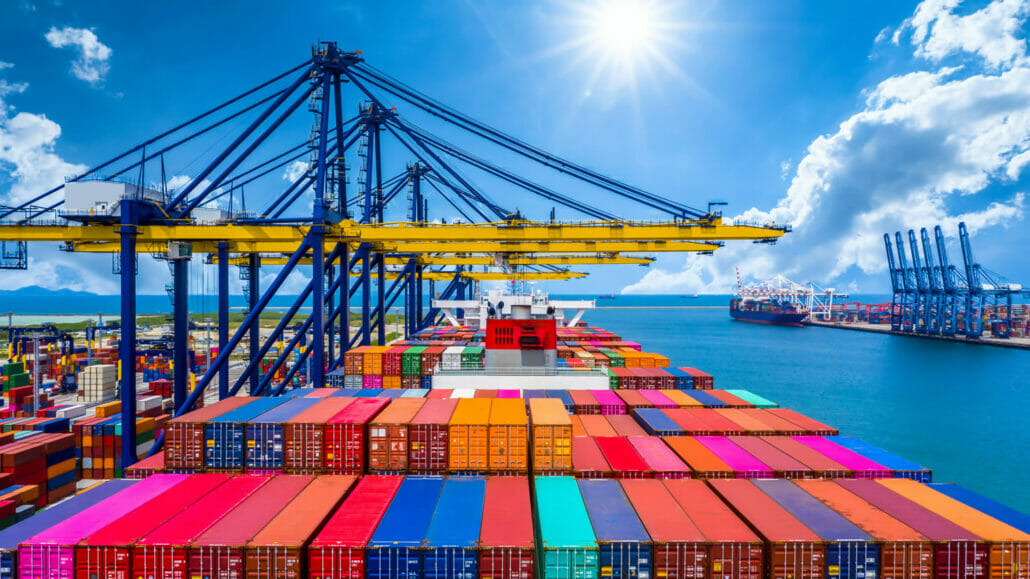Imports and Exports in South Africa
According to The Observatory of Economic Complexity (OEC) –
“In May 2023 South Africa exported ZAR176B and imported ZAR174B, resulting in a positive trade balance of ZAR2.46B. Between May 2022 and May 2023 the exports of South Africa have increased by ZAR1.65B (0.94%) from ZAR175B to ZAR176B, while imports increased by ZAR23B (15.2%) from ZAR151B to ZAR174B”.
Our biggest trade partners are China, Germany, and the United States. In fact, as of May 2023 South Africa had –
- Exported to the value of ZAR21.3B to China and imported to the value of ZAR40.3B from China;
- Exported to the value of ZAR15.6B to Germany and imported to the value of ZAR15.3B from Germany, and
- Exported to the value of ZAR14B to the United States and imported to the value of ZAR14.3B from the United States.
Our other trade partners are United Kingdom (with exports of ZAR10.3B), and Japan (with exports of ZAR9.53B) and India (with imports of ZAR12.1B), and United Arab Emirates (with imports of ZAR5.72B) (OEC).
Those are large sums of money and “big hitter” trading partners.
And that got us thinking –
- What is this whole importing exporting game?
- What are the requirements to important and export? and
- How do local businesses get their piece of the trade pie?
The purpose of this article is to instill some industry knowledge – specifically imports and exports – in the minds of our readers, because at Kuda FX, we believe that knowledge is power.
With that said, let’s forge ahead…

What is importing and exporting?
According to Toppr –
“Importing and Exporting are means of Foreign Trade. Foreign trade is carried out in goods and services – which includes imports, exports, and the balance of foreign trade – is presented separately for goods and for services. The total imports, exports, and balance of foreign trade are presented as summaries of goods and services.
Exporting refers to the selling of goods and services from the home country to a foreign nation. Whereas, importing refers to the purchase of foreign products and bringing them into one’s home country”.
Essentially an import is a good or service bought in South Africa but which was produced in China whereas exports are when goods produced in South Africa are purchased in China.
According to Investopedia, there are two important points about imports and exports to consider –
- “Imported goods or services are attractive when domestic industries cannot produce similar goods and services cheaply or efficiently.
- Free trade agreements and tariff schedules often dictate which goods and materials are less expensive to import”.

What are the requirements for imports and exports?
We sat down with Kuda FX’s Forex Relationship Manager, Beulah Brown who set out the following –
In South Africa, the import and export of goods are subject to various regulations and procedures to ensure compliance with customs and trade laws. If you are looking to import or export goods in South Africa, here are some considerations:
- You will need to register as an importer or exporter – to engage in import and export activities, you may need to register with the South African Revenue Service (SARS).
- You will need to obtain an importer and exporter code – it’s essential to have an importer and exporter code which will allow for smooth customs clearance and documentation.
- You must comply with customs regulations – do careful research on tariff classifications, customs duties, and import and export control measures to ensure you are always in the know with regards to customs duties. Exchange control currency and regulations may also apply to international transactions. Kuda FX can be of assistance where this is concerned.
- You will need to determine duty and tax obligations – you will need to understand the duty and tax obligations associated with your specific imports or exports. South Africa has a complex tariff structure refer to SARS where this is concerned. Duties and taxes can vary widely depending on the goods you are dealing with.
- There is some documentation you will need – your import and export transactions must include the necessary paperwork. Including invoices, packing lists, bills of trading, certificates of origin, and any permits or licenses required for specific goods.
- There are customs clearance requirements – goods entering or leaving South Africa must go through customs clearance. This involves submitting the required documentation and paying any applicable duties and taxes.
- You will need import and export permits – certain goods may require import or export permits or licenses from relevant government departments. Be sure to check whether your products may need a permit. Trade Logistics can help you with these permits.
- Incoterms – you will need to use internationally recognized Incoterms (International Commercial Terms) in your contracts to define the responsibilities and obligations of the buyer and seller regarding shipping and delivery.
- Freight and Logistics – it’s advisable to partner with a reliable freight and logistics company whether you are transporting by sea, air, road, or rail.
- Compliance with Sanctions and Embargoes – you will need check that no international sanctions or embargoes apply to the specific countries you are dealing with.y
How do you get your piece of the foreign trade pie?
Kuda FX is here to help you all the way!
Kuda FX specializes in converting your South African Rand into Dollar, Sterling, Euro, and any other currencies to your nominated offshore beneficiary. How do we do it? We open an Investec / Bidvest company account to use for the flow of outward funds or receipt of export proceeds. We offer tailored FX solutions for importers, exporters, and other forex transactions.
There is a once-off SWIFT fee, competitive exchange rates, and no commission. Our trusted and committed team always place you at the centre of the trading process and direct dealing service or online trading capabilities. Our admin team takes responsibility for all the paperwork related to the trade and balance of payment reporting to the SARB. Kuda FX also offers expert and personal SARB guidance around your applications.
In addition, Kuda FX has partnered with Trade Logistics, who assist companies with all their import and export requirements, including obtaining an import or export license (in 5 – 10 days). By using Trade Logistics, you are able to receive assistance from your dedicated FX provider like Kuda FX.
While we encourage the gaining of knowledge, we also advise you to get in touch with a forex professional, like our team at Kuda FX who would be happy to explain the above concepts in further detail to you or alternatively, provide you with any other assistance you may require with your specific forex needs.
In fact, if you have any queries on the information, we have set out above, please feel free to get in touch with us.
We cannot wait to help you with all your forex needs!
